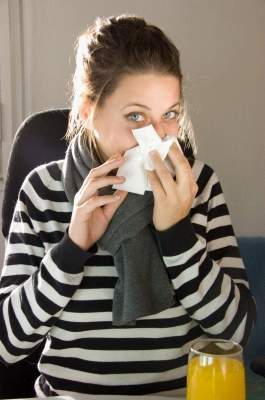 Avoid Spreading The 'Winter Vomiting' Bug
Avoid Spreading The 'Winter Vomiting' Bug
by Patricia Montgomery, LincsMag Writer.
Date: 03 December 2011

The Health Protection Agency (HPA) which covers the Lincolnshire area, is offering advice on how to avoid the “winter vomiting” bug norovirus and prevent the infection spreading to other people.
Norovirus infection is the most common cause of vomiting and diarrhoea in the UK, affecting 600,000 to one million people every year. The symptoms are severe vomiting and or diarrhoea, but it is generally a short-lived illness from which the majority of people will recover in 12 to 60 hours without treatment other than resting and taking fluids to replace lost liquids.
The illness is highly infectious and great care needs to be taken to prevent its spread.
Dr. Katie Geary, a Consultant in Communicable Disease Control at HPA East Midlands, said: “We know from past experience that we can expect to see more outbreaks of norovirus infection as winter approaches so we are taking action to limit the impact on individuals and institutions, such as hospitals and residential care homes.
“Norovirus infection is particularly difficult to contain when it gets into environments where people live or work in close proximity, such as hospitals, residential care homes and schools.
“In hospitals, it is often necessary to close wards as measures are taken to contain the infection and stop it spreading. It can also lead to staff illness and of course it increases the risk to patients who have other serious illnesses.
“However, there are things that people can do to protect themselves and others from the worst effects of norovirus infection.”
The advice for people with symptoms is:
* Wash your hands thoroughly and regularly, particularly after toilet visits and before eating.
* Do not share towels with others. If possible, use paper towels after hand-washing and dispose of them immediately.
* Make sure that any surface that is contaminated by vomit or faeces is promptly and thoroughly disinfected after an episode of illness.
* Stay away from work, school or college until you have been free of symptoms for at least 48 hours.
* Do not handle or prepare food for other people until you have been symptom free for a minimum period of 48 hours.
* Do not visit friends or relatives in hospitals or residential care homes to avoid introducing the infection to environments where it could spread easily and put vulnerable people at greater risk.
* Do not attend social gatherings until you have been free of all symptoms for at least 48 hours.
* Do not visit your GP surgery or local A&E Unit. You will recover naturally without treatment, but it is important to rest and take plenty of drinks to replace lost fluids.
* If your symptoms persist or appear to be worsening, phone your family doctor or NHS Direct for advice.
* If you have bloody diarrhea (blood in your stools), phone your doctor or NHS direct urgently for advice. Don’t delay.
The NHS Direct number is 0845 4647.
Stay At Home
Dr. Geary added: “People with the infection should stay at home, ensure that their personal hygiene is good, particularly hand-washing, and avoid contact with others where possible.
“However, the elderly and very young can sometimes get more severe infection or become dehydrated. If that should be the case, they or their family, friends or the people who care for them should telephone their GP service or NHS Direct for advice.”